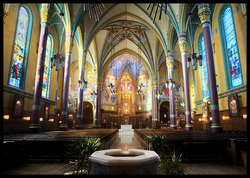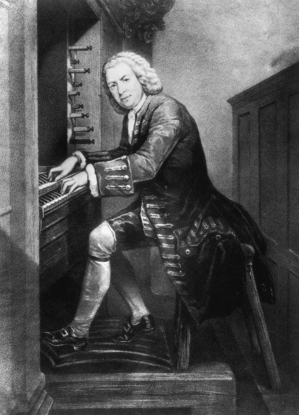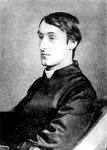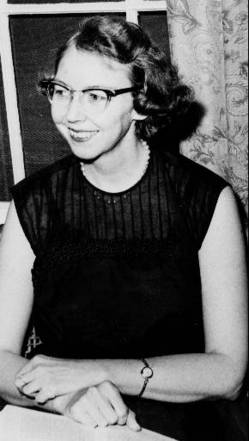The Norwegian based Nobel Peace Prize awarded the 2009 prize to the 44th US President, Barack Obama. For what? They cite “his extraordinary efforts to strengthen international diplomacy and cooperation between peoples.” (I think it would better if the English should read: among peoples, but who am I?) How would they know what his diplomatic policies and strategies are since the deadline was February 1, barely two weeks after Obama took office? What exactly has he done to merit such a prize? Why is this liberal body of culture makers so enthusiastic at President Obama?
Category: Culture
Franciscans cultivate possibilities for change for addicts
Some of our brothers and sisters have found themselves in a downward spiral that could end in premature death if a fundamental change doesn’t happen: getting & remaining clean. It’s easy to pontificate about the necessity to get and stay clean “or else,” perhaps even trying brow-beat someone into change hoping to trigger a desire to live more healthily. None this works. The simple thing is to allow God’s grace to work and to have a clean environment to live and work, to provide competent professional help and to make opportunities available for substantive change to happen. One more ingredient in my book that’s essential and a non-negotiable is the spiritual. Prayer, spiritual direction and fidelity to the witness of the Church goes to the root level of human desires and happiness given us by Divine Providence. But we have to admit that unless a drug addict wants to change her life no amount clever argument or cute programing is going to matter. If a person doesn’t take his human heart (his desires) seriously, including his need of happiness, then there is little we who aren’t captured by addiction can do.
Catholic Underground NYC is coming soon: Sept 5th
The Madeleine turns 100
 Utah’s Catholics are celebrating a 100 years of the Catholic cathedral’s presence in a state long known as a haven for Mormons. The mother church of the diocese, The Cathedral of the Madeleine, is 100 years old. While history shows us that Franciscan missionaries preached and celebrated Mass as early as 1776, this celebration concretizes a presence in a house of prayer that has celebrated the sacraments unto salvation.
Utah’s Catholics are celebrating a 100 years of the Catholic cathedral’s presence in a state long known as a haven for Mormons. The mother church of the diocese, The Cathedral of the Madeleine, is 100 years old. While history shows us that Franciscan missionaries preached and celebrated Mass as early as 1776, this celebration concretizes a presence in a house of prayer that has celebrated the sacraments unto salvation.
Johann Sebastian Bach: 259th anniv of death
Seeing Jesus next to you
 We’re in the middle of the annual Vacation Bible School. About 150 kids ranging in ages 4-11 are attending the week. Each day a member of the clergy (or the seminarian) gives an explanation of the day’s Scripture passage who then ends the 5 minute lesson with a prayer. Well…
We’re in the middle of the annual Vacation Bible School. About 150 kids ranging in ages 4-11 are attending the week. Each day a member of the clergy (or the seminarian) gives an explanation of the day’s Scripture passage who then ends the 5 minute lesson with a prayer. Well…
Moscow Patriarch said women are the stronger sex
OK, I laughed (to myself so as not to disturb the priests with whom I live) that Patriarch Kirill of Moscow and All Russia said in May to a youth conference that he thinks women are the stronger sex and psychologically more sturdy than men. My mother and sister would agree; and if my grandmothers and Aunt Jeanne were alive, they’d agree with His All Holiness. I am happy that he said this because he confirmed something I always knew or was drilled into my noggin –and heard proclaimed by women’s organizations since I’ve been in seminary formation. While this is neither new news nor as the critical as the oxygen being sucked out of the news industry in the past 8 days (with Michael Jackson’s death) but now it’s “infallible” and we all know the truth. Really, I am not poking fun at the Russian Patriarch…I think it’s humorous that such a point was newsworthy of Interfax, a news agency. In part, Patriarch Kirill said:
“Men happen to be frailer. The upheavals of 1990s
caused many of them to break down, but women had more vigor to endure the stress.”
Answering questions, it was said that sport
achievements required courage: “women win our country most
of Russia’s gold medals in sport.”
The Patriarch’s words received a
riveting ovation. “An individual comprises both spirit and body, and human
strength depends not only on its physical component. In this regard, women are
the stronger sex,” Patriarch Kirill said.
That he travels around Russia Patriarch Kirill noticed that “Almost every village has some kind of an
amateur talent group. Who sings in a choir? Women do, and sometimes they are
accompanied by a drunken accordionist.” The same is true for many village schools, libraries, post offices, local
administration where women have to play the lead, concluded Kirill.
Gerard Manley Hopkins: 120th anniversary of death
Today is the 120th anniversary of death of Father Gerard Manley Hopkins, the Jesuit poet.
Peace
When will you ever, Peace, wild wooddove, shy wings shut,
Your round me roaming end, and under be my boughs?
When, when, Peace, will you, Peace? I’ll not play hypocrite
To own my heart: I yield you do come sometimes; but
That piecemeal peace is poor peace. What pure peace allows
Alarms of wars, the daunting wars, the death of it?
O surely, reaving Peace, my Lord should leave in lieu
Some good! And so he does leave Patience exquisite,
That plumes to Peace thereafter. And when Peace here does
house
He comes with work to do, he does not come to coo,
He comes to brood and sit.
Vatican becomes better tech friendly
For the 43rd World
Communications Day the Vatican has rolled out some new tech initiatives. The Pontifical Council for Social Communications has been working overtime these days to bring the Church into the 21st century via technology.
See the
following:
Some resources for pastor
types
The Pope’s
address for the Communications Day on May 24th: “New
Technologies, New Relationships: Promoting a culture of Respect, Dialogue and
Friendship“
Pope2You (to be officially launched Thursday)
Plus there is
The Vatican on YouTube
iBreviary (available from iTunes for the iPhone for a $1.00, in English & Italian)
For your iPhone there is an application for a Jewish Prayerbook
Reason, Fiction and Faith: a conference on Flannery O’Connor
An International Flannery O’Connor Conference
The April 20-22,
2009 conference was sponsored by the Poetics & Christianity
which is “an international forum for studying the intersection of artistic
culture and expressions of religious faith, with a special emphasis on
narrative and dramatic arts. It offers a meeting place for scholars and artists
of diverse fields of expertise.”
The O’Connor Conference was the 4th gathering
of scholars and other interested parties matters pertaining to art and faith.
Since Flannery O’Connor is relatively unknown in Europe, Father Wauck felt it was time
to introduce the world to writer who lived her Catholic faith and wrote fiction
using Catholic sacramentality. Father Wauck said,
“Flannery O’Connor’s fiction offers an example of what
Catholic art can achieve when it’s fully informed by a sophisticated
theological understanding, a rigorous philosophical background, and also the
kind of dedication to craft, to the artistry of writing that she combined.”
A video clip on the conference can be seen here.




